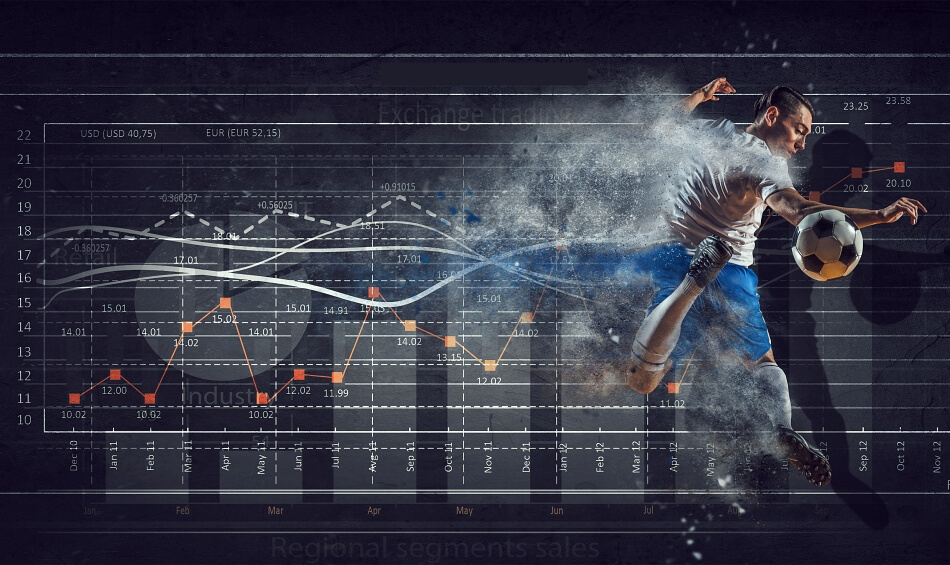Welcome to the fascinating world of statistical analysis in sports, where data-driven insights transform the way we understand and predict match outcomes. In this article, we'll delve into the power of statistical analysis, how it helps us make informed predictions, and its crucial role in the world of sports.
The Intrigue of Statistical Analysis
In the realm of sports, where anything can happen, predicting the outcome of a match accurately has long been a challenge. From the underdog victories to the unexpected upsets, the unpredictability is part of what makes sports so captivating. However, this is where statistical analysis steps in, offering a glimmer of predictability amid the chaos.
The Essence of Statistical Analysis
Statistical analysis involves the systematic collection, interpretation, and evaluation of data. In sports, it's the process of crunching numbers, examining historical data, dissecting team statistics, and assessing player performance to forecast the results of upcoming matches. This method employs statistical models, which play a pivotal role in extracting valuable insights from the data.
The Importance of Accurate Predictions
Why are accurate predictions essential in the world of sports? They offer several advantages, influencing various aspects of the sports industry.
Enhanced Fan Engagement
Accurate predictions heighten fan engagement by making every match more exciting. When fans feel confident in their ability to foresee outcomes, they become more invested in the game. This increased engagement translates into higher viewership and stadium attendance.
Betting and Gambling
The sports betting and gambling industry heavily relies on the ability to predict match results. Individuals who place wagers on matches depend on these predictions to make informed betting decisions. Accurate predictions can significantly affect the financial landscape of both bettors and the industry itself.
The Factors Affecting Match Results
For statistical analysis to be effective, it must consider several crucial factors that influence match outcomes. These include:
Team Form and Performance
The recent performance of a team is often a strong indicator of their potential success in an upcoming match. Teams in good form are more likely to continue their winning streaks, while those struggling may face difficulties.
Player Injuries and Suspensions
The absence of key players due to injuries or suspensions can significantly impact a team's performance. Being aware of these factors is vital for making accurate predictions.
Home and Away Advantage
Teams often perform differently when playing at home compared to playing away. Understanding the dynamics of the home and away advantage is essential for crafting informed predictions.
Statistical Analysis in Action
How does statistical analysis work in practice? Let's break down the process.
Data Collection
To predict match results accurately, statisticians collect a plethora of data. This data includes historical match data, player statistics, team performance metrics, weather conditions, and more. Access to the most comprehensive and up-to-date data is crucial for informed predictions.
Pattern Recognition
Statistical models excel at recognizing patterns within the data. They identify trends and relationships between various factors, helping to make predictions. For example, these models can analyze historical match data to determine how a team performs under specific weather conditions or against particular opponents.
Continuous Improvement
One of the strengths of statistical analysis is its ability to learn continuously. As new data becomes available, the models adapt and refine their predictions. This ongoing learning process ensures that predictions remain as accurate as possible.
The Role of Data in Sports
Data is the lifeblood of statistical analysis in sports. It encompasses various information, including historical match results, player statistics, and even minute details like weather conditions. Accurate and up-to-date data is crucial for crafting well-informed predictions.
The Challenges and Limitations
While statistical analysis has shown remarkable potential in predicting match results, it comes with its challenges and limitations.
Unpredictable Factors
Sports, by their very nature, are filled with unpredictable elements. Unexpected injuries, last-minute substitutions, and even the emotional state of players can influence the outcome of a match. Statistical models struggle to account for these unpredictable factors.
Data Accuracy
The accuracy of predictions heavily depends on the accuracy of the data used. Inaccurate or incomplete data can lead to flawed predictions.
Ethical Considerations
Ethical considerations are vital, especially in sports betting and gambling. Responsible gambling and preserving the integrity of the sport should always be a top priority.
The Future of Statistical Analysis in Sports
The future of statistical analysis in sports is immensely promising. As technology continues to advance, the models and algorithms will become more sophisticated and accurate. Their applications will extend beyond predicting match results to providing insights into player performance, injury prevention, and game strategy.
In conclusion, statistical analysis in sports is a game-changer. It offers a data-driven perspective in a world of unpredictability, making sports even more thrilling and engaging for fans. As technology companies continue to invest in this field, the future of sports prediction looks brighter than ever.
FAQs
-
How accurate are statistical analysis predictions in sports?
Statistical analysis can provide relatively accurate predictions, but the unpredictable nature of sports always introduces an element of uncertainty.
-
Can statistical analysis predict the exact score of a match?
While it can provide score predictions, predicting the exact score is challenging due to the many variables in sports.
-
Is statistical analysis used in professional sports analysis?
Yes, professional teams and analysts use statistical analysis to gain insights into player performance, game strategy, and injury prevention.
-
What's the future of statistical analysis in sports prediction?
The future is promising, with increasing accuracy and broader applications in sports analysis and prediction.
-
Are statistical analysis predictions ethical for sports betting?
Ethical considerations are crucial. Responsible gambling and the preservation of the integrity of the sport should always be a priority.

